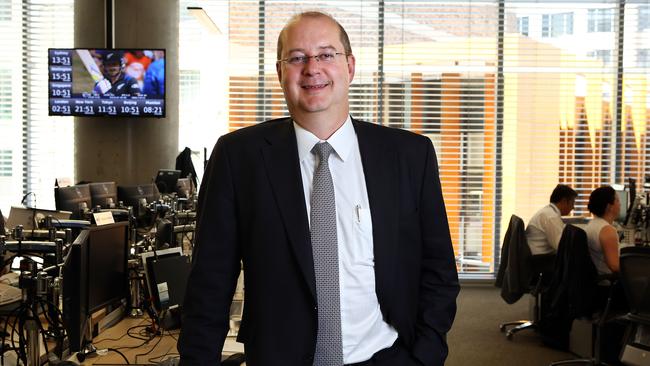Judo Bank’s Warren Hogan says Reserve Bank has no choice but to lift interest rates again
A top economist has warned that households should prepare for two rate hikes this year in an outlier view amid a strong jobs market and cost of living relief that could fuel inflation.

The Reserve Bank is set to pave the way for an upcoming interest rate rise when it concludes its board meeting on Tuesday afternoon amid a robust jobs market and concerns that fresh stimulus will heighten already elevated levels of inflation, according to an outlier economist prediction.
Judo Bank chief economic adviser Warren Hogan has warned that the RBA will have to lift the cash rate in August and also in November by 25 basis points each time to a new peak of 4.85 per cent to offset what he described as concerning economic trends.
In 2023, he correctly predicted that the RBA would hike interest rates by five times.
If proven it would be a blow for households already slammed with 13 rate rises between May 2022 and November 2023, which have seen repayments on the average $500,000 loan increase by $1210 a month and $2420 on a $1m loan, according to RateCity.com.au.
Another rate hike would increase mortgage repayments by $77 per month on a typical $500,000 loan and as much as $154 on a $1m.
Economists at Commonwealth Bank, NAB and Westpac say rates have peaked and the RBA will cut rates by November, while ANZ, Barrenjoey, Jarden and HSBC see rate cuts from 2025.
Mr Hogan said the RBA over Monday and Tuesday will be presented with updated economic figures, which will show that the economy in the March quarter grew by 0.1 per cent, for 1.1 per cent in the year – the lowest annual growth (pandemic excluding) in 30 years.
It will also hear that the unemployment rate fell to 4 per cent in May after almost 40,000 jobs were added – more than expected. Some of the rise was put down to an unusual pattern of people that had waited until May to start.
“The strong jobs growth shows that employment in 2024 is picking up pace despite the economy being quite soft, which means we’re going to have no productivity growth. It will also mean that inflation is not coming down any further,” he said.
“The RBA will be questioning over Monday and Tuesday whether the cash rate is at the right level to get inflation back to target on time, and the evidence building since they last met is getting worse for that view.”
The RBA’s statement on monetary policy published in May shows inflation will remain flat at 3.8 per cent for the rest of the year before falling to within its 2-3 per cent target by December 2025. Services inflation would remain elevated and is expected to decline only gradually during this period.
Economists expect the RBA to keep rates on hold at 4.35 per cent on Tuesday week, but with an upwards bias to its inflation outlook Financial markets – which were tipping a June cash rate of 4.15 per cent as recently as April – also see little prospect of a change.
Mr Hogan said that there was a case that the RBA could go now to avoid having to lift rates further at a later stage, but added that it was likely to begin laying the groundwork from this week for one in the coming months.
“The RBA will send a strong signal that they’re getting very close to having to raise rates because inflation isn’t coming down, and the economy is proving resilient,” he said.
“Given the current sentiment they will probably need support from economists because most have a rate cut as the next move when in reality 40 per cent probably have a weakly held view of that.”
Mr Hogan said the country was creating jobs at rates well above the long-term average, and that the unemployment rate would be much lower than 4 per cent if it was not for the fastest population increase on record in 2023.
“The unemployment rate would be much lower if it wasn’t for this unprecedented population growth driven by the immigration surge of the last years. Our economy has added a million people and yet the unemployment rate has only gone up half a per cent,” he said.
Cost of living relief on the way including the stage three tax cuts could be mixed benefits for households struggling under the weight of higher mortgage repayments. Mr Hogan said tax cuts and cost-of-living measures flagged in federal and state budgets, particularly in Queensland, were set to see disposable income rise the fastest in a decade and would likely lift inflation.
“Tax cuts and cost-of-living support will inject nearly $40bn into household incomes in Australia in 2024-25,” he said. “The pressure value will be release as this economic slowdown has almost entirely been driven by pressure bought to household incomes,” he said.






To join the conversation, please log in. Don't have an account? Register
Join the conversation, you are commenting as Logout